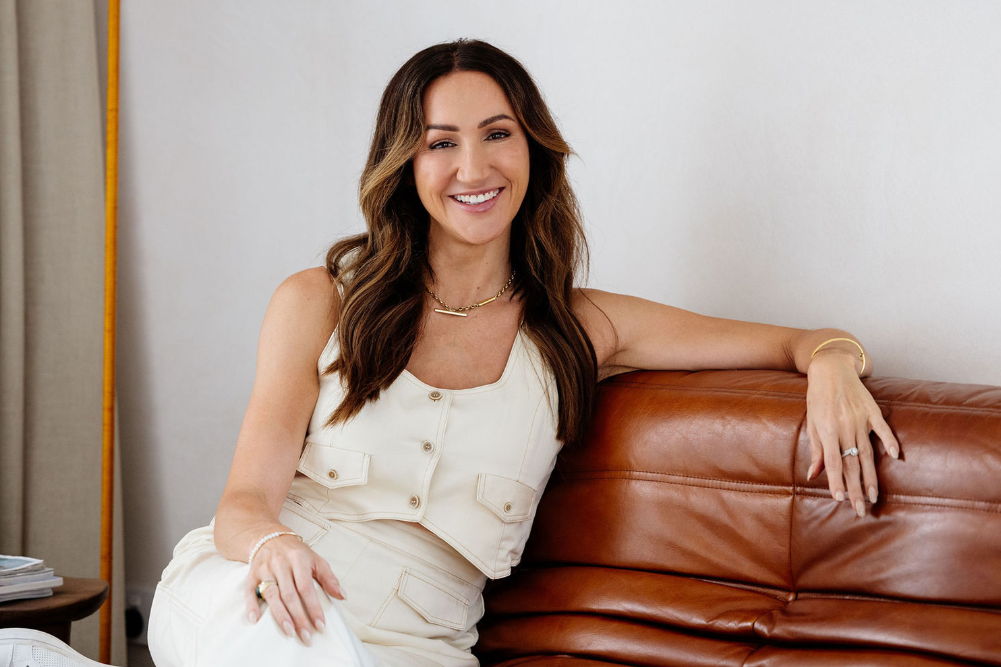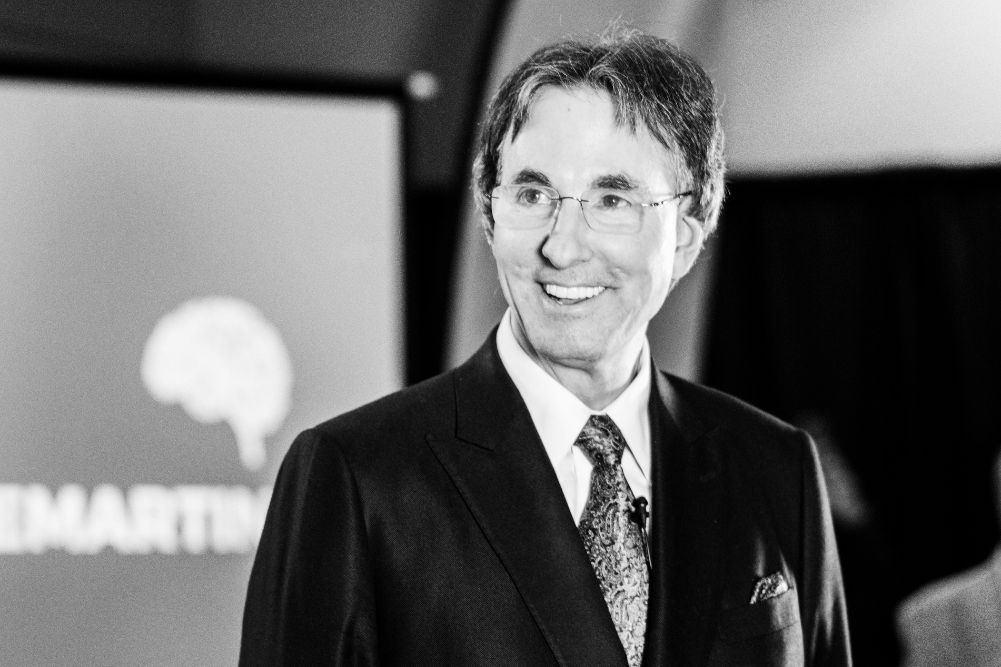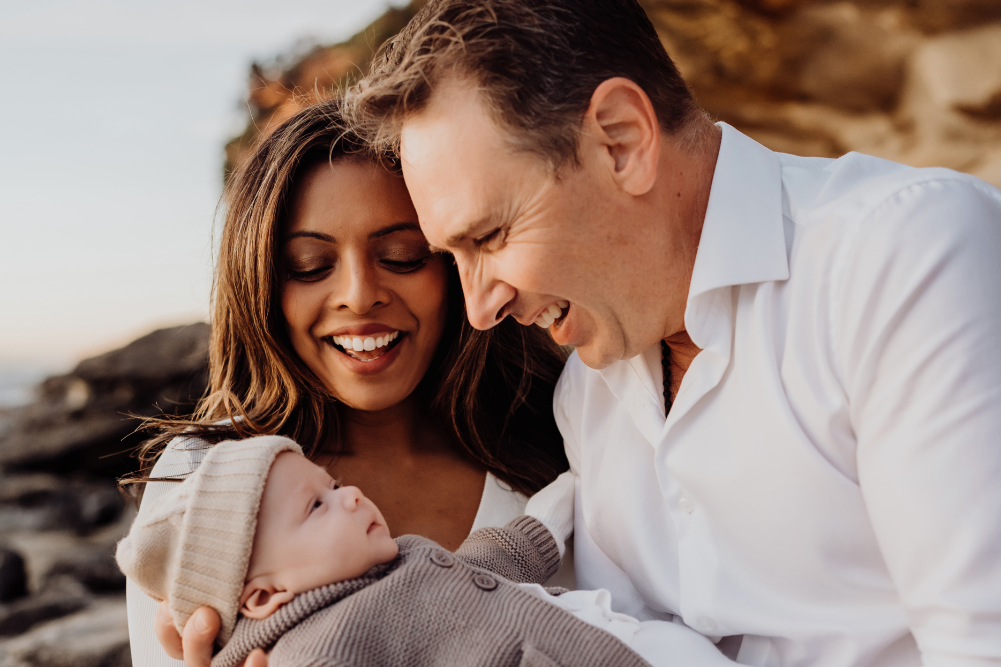We chat to Richard Gill, one of Australia’s pre-eminent conductors
If you’ve ever seen a baby start intuitively bopping along when it first hears music, you would have witnessed the wonders of sound on the human psyche. Something happens when we connect to music: we start to access new parts of our brain and stimulate the feel-good hormones that are so often dormant in our stress-filled world. It’s natural to bop along — and it feels pretty good, too.
But music is so much more than a feel-good pastime. Listening to highly regarded conductor Richard Gill speak about it, you begin to understand how important sound and singing are to our wellbeing and happiness — and why he’s so passionate about teaching children music in Australia and, in the process, completely rethinking our education system’s focus.
The role of music in education
Once describing his musical career as a mixture of “devastating failures and uplifting successes”, Gill has been teaching music and singing for over 50 years. When talking of music lessons in this context, though, we’re not talking about the weekly one-hour recorder lessons that are so often the case in our schools. For Gill, music is the cornerstone of a child’s education.
“Music education is very underserviced in Australia at the moment, particularly in the primary area,” he says. “The importance of music education lies in the fact that music is in our DNA: humans sang well before they spoke. Animals communicated with music — songbirds, whales, monkeys, all animals make some sort of sound to communicate and humans did that before speech was invented. So, music is very much part of our DNA.
“The importance of music education lies in the fact that music is in our DNA: humans sang well before they spoke.”
“It’s also essential, I believe, for our wellbeing. We must be able to sing, to take part in music, to sing with other people, play very simple musical instruments. You don’t have to play the violin but everyone should be able to play some percussion instruments and be able to dance.
“But [music] is different from dance and drama and visual arts and any other form of art because music is abstract and music is sound. It’s intangible; you can’t touch it. So, you can only hear it — and it’s really only perceived aurally — but it’s intensely felt and it’s the only art that moves in abstraction through time.
“Now, drama moves through time and dance moves through time, but to comprehend dance you have to see it and to comprehend drama you have to hear it or read it and you can go back over it. In dance, when you’re on stage, you’re going to use different parts of the stage and same with drama. You need different parts of the text.
“Of course, that’s true with music, but the point is, music is the only art which works in abstraction through time — and that’s why it’s incredibly important for children, because it allows them to use the imaginative side of their brain. The affective domain comes into play very, very early, and that’s what provides a sense of wellbeing.”
Learning how to move, hear the beat and use our own voices not only creates a healthy body and healthy mind, Gill points out, the lack of such education can also have a very serious effect on a child’s — and adult’s — life.
“Unless a child has access to good, sequential, thorough music education, that child is not being educated and, therefore, that child is being deprived of a sense of joy and a sense of wellbeing by not having access to music,” he says.
“I’m not talking about faddy music education here. I’m not talking about outside providers of quick-fix music solutions that come into schools and run fad classes because they think there’s money to be made. Those quick fixes rarely have anything to do with genuine music education.
“Genuine music education is based on singing and it’s based on singing from the outset, right from birth. So, when children hear parents and carers and guardians and siblings sing, they start to put down oral memories of sound.
“This business of children being able to learn an enormous number of songs from memory, nursery rhymes and songs from memory, has a potent effect on their health and wellbeing. So, that’s why it’s really, really important.”
Speaking up for music
As one of Australia’s pre-eminent conductors, Richard Gill has received an Order of Australia for his work as a music educator, specialising in opera, musical theatre and vocal and choral training. His work in developing young musicians and creating opportunities for them has been recognised worldwide and he regularly conducts main-stage performances for Opera Australia and major Australian orchestras.
Gill is also the artistic director of the Sydney Symphony’s Education Program, music director of Victorian Opera, a conductor for the Ears Wide Open program (Melbourne Symphony Orchestra) and advisor for the Musica Viva in Schools program. Throughout his career, he has ensured that his expertise not only helps well-established musicians but also connects with children and younger audiences all over the country, including in schools with a high number of refugee and low-income students.
“I guess I was turned onto music when I was a kid,” he reflects. “I went to a Catholic school in the 1940s, World War II, and we sang Latin masses and stuff like that. So, that’s where it came from. I got turned onto it. It was the chromosome effect. I got turned onto music because it just struck a chord in me — no pun intended — powerfully.
“What’s interesting is that children can be squabbling in the playground or having an argument about who owns this skipping rope or who does this. When they come together in the classroom and sing, all that stuff’s forgotten.”
“And then I became an advocate for music education once I started teaching because I could see, even as a very young teacher, what an amazing effect it had on kids. It changes their confidence. It changes their capacity to focus. It changes their capacity to concentrate. They feel good when they’re taking part. They feel good when they sing together.
“What’s interesting about [music] is that children can be squabbling in the playground or having an argument about who owns this skipping rope or who does this. When they come together in the classroom and sing, all that stuff’s forgotten. And that’s where my advocacy has come from — it’s now more about the fact that we’ve lost our way with education focus in this country.”
After a recent visit to a public school in Sydney, during which he spent a week working with over a thousand children from kindergarten to year six, Gill reflected how heart-warming it was to see so many children come together in such a way.
“Here is a school where children sing naturally, normally, not shouting but singing with beautiful pure tone. Every class sang. The two choirs were also outstanding. Every class had many children who had either recently arrived from troubled parts of the world or whose parents had been born in other parts of the world. Every class had a teacher who cared deeply about the children and who realised the power of a child’s imagination and the value of creativity generated through music.
“Many of the children were learning English from scratch. It was heart-warming to see how they dealt with the songs and the rhymes and how they enjoyed singing together even if most of the words were strange. They were united in song irrespective of race, colour or creed.
“If every child in Australia had an opportunity to learn music through singing, my view is that we would see happier and more productive children.”
Music & society
Of course, when we can teach our children the value of connection through song and music, break down those barriers and encourage their creativity and imagination, the future does not look so grim. Gill may be fiercely passionate about what he sees as a “broken” system in some ways but he also talks excitedly about the emergence of music and song as a way of bringing people back together in a world very much torn apart.
“Music has this wonderful effect of being able to bring a society together, bring communities together, bring children together, bring people together. Look at all the stuff now on YouTube with flash-mob choirs, like the group in Toronto called Choir, Choir, Choir, for example — that’s an extraordinary circumstance where thousands of people come together to sing a couple of songs.
“Unless a child has access to good, sequential, thorough music education, that child is not being educated and, therefore, that child is being deprived of a sense of joy and a sense of wellbeing.”
“I do believe the world is starting to recognise the idea that singing together is a really potent social, physical and emotional circumstance — at least in some circles. We did that as cultures before so-called civilisation. Singing and dance were absolutely central to our lives, as they are still in some cultures in the world.
“So, it doesn’t matter where the kids come from. They all have this wonderful response to music, particularly when they’re taking part, not just passive but really taking part and singing and dancing and enjoying themselves, which is really important. And then learning to improvise based on what they’ve learnt in song.”
A new approach to education
Like it or not, though, we do live in a world built on tangible results. Our society — and education system — is based on what we can measure as success and what we can prove to be true. Just take a look at how the education system is measured in Australia with the current NAPLAN (National Assessment Program — Literacy and Numeracy) system. A school’s performance is judged on how it stacks up against the national average in numeracy and literacy and a child’s progress is measured the same way.
That’s something Gill is determined to change.
“Literacy and numeracy are not subjects,” he says. “They are conditions or states at which one arrives as the result of being taught how to read or write or count or whatever it might be. That’s how you become literate and numerate. So, talking about ‘we have a literacy day today’ or ‘we’re doing numeracy at the moment’ is just rubbish.”
What about the argument that in our technology-driven age children need skills like coding, analytical thinking and online literacy?
“When children learn to sing and read music, when children sing from music sheets and they read the pitch, the notation and the text, they are decoding three symbolic languages simultaneously. No program known to mankind does that other than music. So why are they putting kids into coding and thinking that’s important as opposed to music education? If they all had music education, they’d be able to code to insanity.
“If I had my way, the only mandatory subjects would be singing, reading and writing, music, dancing, sport and playing. I would reduce all public examinations to one examination in year 12. No other examinations in the schools. I would start the school age at seven and not five and six and have plenty of time to play — lots and lots of play — and I would have music, singing and music reading and writing and improvisation as mandatory in every school along with mandatory gymnastics and sport. From this would arise the need to read and write, which would emerge in time.
“All a parent needs to remember is: sing, sing, sing, sing. Sing, dance, read and sing a wide repertoire of songs, and engage their imagination. That’s how you build wellbeing.”








